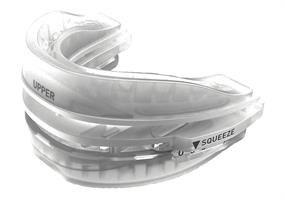Snoring might seem like a minor annoyance, but did you know it could be a sign of a serious medical condition? By understanding your snoring habits and patterns, you can take control of your sleep quality and overall well-being.
Let’s embark on a journey to unravel the mystery of snoring and discover how our comprehensive snoring quiz can help you assess, identify, and improve your sleep.
Snoring Quiz
Key Takeaways
-
Take our comprehensive snoring quiz to evaluate your snoring habits and assess sleep apnea risk factors.
-
Understand the effects of snoring on daily life and seek professional help if lifestyle changes are not successful in managing symptoms.
-
Explore treatment options such as CPAP therapy, mouthpieces, nasal strips & irrigation for improved sleep quality & overall health.
Why Take a Snoring Quiz?
You might wonder why you should take a snoring quiz. After all, isn’t snoring just an annoying habit that doesn’t have any real consequences? Well, think again!
A snoring quiz allows you to evaluate your snoring habits, pinpoint potential sleep disorders like sleep apnea, and work toward better sleep quality and overall health.
So, whether you’re a loud snorer that can be heard through a door or you snore more than three nights a week, answering a few simple questions could make a world of difference to your health and rest, especially if you often doze off during the day.
Assessing your snoring habits
Did you know that there are different grades of snoring? A snore quiz provides an opportunity to gauge the severity of your snoring and classify your snoring type - from occasional to habitual or even sleep apnea snorers. This knowledge can help you understand if you’re at risk for more serious health issues, such as briefly stopping breathing during sleep, which can lead to complications if left untreated.
So, don’t brush off your snoring habits as a mere annoyance - understanding them could be crucial for your health.
Identifying potential sleep disorders
Not everyone who snores has a sleep disorder, but it’s important to rule out the possibility. Sleep apnea, a disorder identifiable through a snoring quiz, is evaluated based on factors such as collar size and daytime sleepiness, helping you identify your risk level.
Left untreated, sleep apnea can lead to serious health concerns like high blood pressure and heart disease. So, if you notice that you’re abnormally sleepy even when sitting quietly or dozing off during the day, it’s time to take action and seek professional help.
Enhancing sleep quality and overall health
Recognizing your snoring habits and uncovering potential underlying issues empower you to enhance your sleep quality and boost overall health. From experimenting with sleep position adjustments to managing your weight and avoiding alcohol before bedtime, there are numerous ways to improve your sleep.
Fall asleep faster and enjoy a healthier lifestyle by understanding your snoring habits and taking the necessary steps to address them.
Get Started: Take Our Comprehensive Snoring Quiz
With a clear understanding of the significance of evaluating your snoring habits, let’s take the next step! Our detailed snoring quiz aims to dissect your snoring patterns, assess sleep apnea risk factors, and illuminate the impact of snoring on your daily life.
So, are you ready to take control of your sleep and well-being? Just click the “submit” button above after answering the questions. Let’s embark on a journey to better sleep and improved overall health!
Analyzing your snoring patterns
Our snoring quiz offers a platform to reveal the reality of your snoring patterns and habits, gleaning valuable insights into your snoring behavior through questions about its severity, frequency, and impact on sleep quality. From simple snores to complex waveform snores, understanding your unique snoring patterns is the first step in addressing sleep issues and enhancing your overall well-being.
So, take a deep breath and get ready to discover what lies beneath your nighttime symphony, as circumstances permit.
Evaluating risk factors for sleep apnea
Sleep apnea, a significant sleep disorder, can be detected via our detailed snoring quiz. The quiz evaluates various factors related to snoring, such as:
-
Loudness
-
Frequency
-
Gasping or choking sounds
-
Pauses in breathing
-
Excessive daytime sleepiness
-
Morning headaches
-
Difficulty concentrating
-
Irritability
This quiz assists you in determining if your snoring patterns align with sleep apnea symptoms.
If you suspect that you may have sleep apnea, it’s crucial to seek further evaluation and medical advice to ensure your health and well-being are safeguarded.
Understanding the impact of snoring on your daily life
Snoring doesn’t only affect your sleep; it can also take a toll on your daily life and overall well-being. Persistent snoring can lead to daytime sleepiness, irritability, and even cognitive impairment. By understanding the impact of snoring on your daily life, you can take the necessary steps to address the issue and reclaim your restful nights and energetic days.
So, don’t let snoring control your life - take our quiz and regain control of your sleep and well-being.
Types of Snorers: Which One Are You?
Are you an occasional snorer, a habitual snorer, or do you suffer from sleep apnea? Identifying your kind of snorer is pivotal for grasping the severity of your snoring and the potential health risks it carries. The snoring quiz aids in pinpointing your snoring type, enabling you to tackle the issue and enhance your sleep quality.
So, let’s dive into the world of snoring types and find out which one you are!
Occasional snorers
Occasional snorers might not think much of their snoring habits, but it’s still important to understand the factors that contribute to it. Occasional snoring is generally harmless; however, snoring loud or disruptive snoring can be indicative of a more serious sleep disorder, such as sleep apnea.
A clear comprehension of the characteristics and potential causes of occasional snorers helps you prevent your snoring from escalating into a serious health concern.
Habitual snorers
Habitual snorers, those who snore more than three nights a week, face a different set of challenges. Chronic snoring can lead to sleep disturbances, daytime fatigue, and even increased risk of high blood pressure and heart disease.
As a habitual snorer, understanding the potential health risks linked to your snoring habits is vital, enabling you to take appropriate measures to tackle the issue. Don’t let snoring control your life - take action and improve your sleep quality today.
Sleep apnea snorers
Sleep apnea snorers face the most serious health risks of all snoring types. With symptoms like loud snoring, gasping or choking during sleep, and pauses in breathing, sleep apnea can lead to severe health complications if left untreated. Recognizing sleep apnea symptoms and seeking professional assistance to tackle the condition is vital.
By doing so, you can improve your sleep quality, reduce the risk of health complications, and reclaim your restful nights and energetic days.
Recognizing the Signs of Sleep Apnea
Sleep apnea is a serious sleep disorder that can have severe health consequences if left unchecked. By recognizing the signs of sleep apnea, such as briefly stopping breathing during sleep, excessive daytime sleepiness, and high blood pressure, you can take the necessary steps to address the issue and safeguard your health.
Don’t let sleep apnea control your life - learn to recognize the signs and take action to improve your sleep quality and overall well-being.
Briefly stopping breathing during sleep
One of the key symptoms of sleep apnea is when you briefly stop breathing during sleep. This can result in a decrease in oxygen levels, abnormal gas exchange, and activation of a survival reflex that wakes you up to resume breathing. If you or your bed partner notice this symptom, it’s crucial to seek professional help to address the issue and prevent further health complications.
Don’t let sleep apnea control your life - take action and improve your sleep quality today.
Excessive daytime sleepiness
Excessive daytime sleepiness is another symptom of sleep apnea that can have a significant impact on your daily life and overall health. If you find yourself abnormally sleepy even when sitting quietly or dozing off during the day, it’s essential to seek professional help to address the issue.
Don’t let sleep apnea control your life - take action to improve your sleep quality and overall well-being today.
High blood pressure and other health concerns
Sleep apnea is associated with several health concerns, such as:
-
High blood pressure
-
Heart disease
-
Stroke
-
Type 2 diabetes
-
Depression
If you suspect that you have sleep apnea, it’s crucial to seek professional help to address the issue and prevent further health complications.
Don’t let sleep apnea control your life - take action to improve your sleep quality and overall well-being today.
How to Improve Your Sleep Quality
Enhanced sleep quality is a key factor in overall health and well-being. Taking charge of your snoring habits and implementing simple lifestyle changes can lead to improved sleep quality, contributing to a healthier, more productive life.
This section delves into various strategies such as sleep position adjustments, weight management, and refraining from alcohol and sedatives before bedtime, all aimed at enhancing sleep quality.
Sleep position adjustments
Did you know that simply adjusting your sleep position can help reduce snoring and improve sleep quality? Sleeping on your side or stomach can help keep the airways open and alleviate mild apnea. Conversely, sleeping on your back can cause the base of the tongue and soft palate to collapse, leading to snoring.
Experimenting with different sleep positions can help you discover what works best for you, leading to more restful sleep.
Weight management and exercise
Weight management and exercise can play a significant role in reducing snoring and improving sleep quality. Here are some strategies to consider:
-
Maintain a balanced diet and eat a variety of nutritious foods.
-
Engage in regular physical activity, such as walking, jogging, or swimming.
-
Aim to achieve and maintain a healthy weight.
-
Consider specific exercises, such as oropharyngeal muscle exercises, to strengthen the muscles in the throat and reduce snoring.
By incorporating these strategies into your lifestyle, you can alleviate snoring and enhance your overall well-being.
Adopting a healthy lifestyle and incorporating regular exercise into your daily routine can help you manage your snoring habits effectively.
Avoiding alcohol and sedatives before bedtime
Alcohol and sedatives can have a detrimental effect on your snoring and sleep quality. By relaxing the muscles in your throat, they can cause airway obstruction and intensify snoring. To improve your sleep quality, it’s essential to avoid alcohol and sedatives, especially before bedtime.
This simple lifestyle change, which includes reducing time spent watching TV, can pave the way for more restful, uninterrupted sleep, ensuring you don’t doze or fall asleep during the day, especially when sitting inactive.
When to Seek Professional Help
While lifestyle changes and self-help strategies can go a long way in improving your sleep quality and reducing snoring, there may come a time when professional help is necessary. This section will cover the signs that signal it’s time for medical advice, such as persistent snoring despite lifestyle changes, severe daytime sleepiness, and concerns about overall health and well-being.
Persistent snoring despite lifestyle changes
If you’ve made lifestyle changes and still experience persistent snoring, it’s time to seek professional help. Persistent snoring can lead to:
-
Sleep disturbances
-
Daytime fatigue
-
Increased risk of high blood pressure
-
Increased risk of heart disease
A healthcare professional can diagnose the underlying cause of your snoring and provide appropriate treatment options to help you regain control of your sleep quality and overall health.
Experiencing severe daytime sleepiness
Severe daytime sleepiness can be a sign of a more serious sleep disorder, such as sleep apnea. Experiencing excessive sleepiness during the day warrants a consultation with a healthcare professional for appropriate evaluation and treatment.
Don’t let sleep apnea control your life - take action and improve your sleep quality today.
Concerns about overall health and well-being
Untreated snoring and sleep apnea can lead to a variety of health issues, including:
-
High blood pressure
-
Heart disease
-
Stroke
-
Type 2 diabetes
-
Depression
If you’re concerned about your overall health and well-being, it’s crucial to seek professional help to address your snoring habits and improve your sleep quality.
Your health is too important to ignore - take action and seek the help you need to live a healthier, more vibrant life.
Treatment Options for Snoring and Sleep Apnea
There are various treatment options available for snoring and sleep apnea, including Continuous Positive Airway Pressure (CPAP) therapy, snoring mouthpieces, and nasal strips.
This section examines these treatment options and their effectiveness in managing snoring and sleep apnea. Finding the right treatment tailored to your unique situation is crucial for optimal sleep quality and overall health.
Continuous Positive Airway Pressure (CPAP) therapy
CPAP therapy is a widely accepted treatment option for sleep apnea. It involves using a small machine placed next to your bed to deliver pressurized air through a mask or nosepiece. This continuous flow of air helps keep your airway open during sleep, reducing snoring and alleviating sleep apnea symptoms.
Given its proven effectiveness and high compliance rates, CPAP therapy can revolutionize the lives of individuals suffering from sleep apnea.
Snoring Mouthpieces
Snoring mouthpieces, also known as mandibular advancement devices, are designed to reduce snoring by advancing the lower jaw or restraining the tongue’s movement while sleeping. This helps maintain an open airway and reduces tissue vibration that causes snoring.
These devices, with their proven success in curbing snoring and enhancing sleep quality for many, stand as a worthy consideration for those seeking a snoring solution.
>> Check out SnoreRx Plus, our favorite snoring mouthpiece! <<
Nasal Strips and Irrigation
Nasal strips and irrigation can help alleviate snoring by widening the nasal passages and improving airflow. Nasal strips are adhesive strips applied to the nose, containing plastic splints that act as a spring-like band to lift the nasal passages. Nasal irrigation, such as using a neti pot or saline spray, can help clear congestion and reduce inflammation in the nasal passages.
Although these methods may improve snoring symptoms, they are not a substitute for medical treatment for sleep apnea.
Summary
Snoring might seem like a harmless habit, but it can have serious implications on your sleep quality, overall health, and well-being. By understanding your snoring type and patterns, you can take the necessary steps to address the issue and improve your sleep.
Whether it’s through lifestyle changes, sleep position adjustments, or seeking professional help for sleep apnea, taking control of your snoring can lead to a healthier, more vibrant life.
Don’t let snoring control your life - take charge and start your journey to better sleep today.
Frequently Asked Questions
How can I check if I snore?
To check if you snore, start by asking your bed partner about your snoring, and look out for common symptoms. Additionally, record yourself sleeping or keep a sleep log/diary, and visit a Physician or Sleep Specialist for further evaluation.
How do I know what type of snorer I am?
You can easily determine if you are a mouth snorer or a nasal snorer by closing off one nostril with a finger and breathing through the other. If your open nostril caves in, you may be a nose snorer.
Is there an app to detect snoring?
Yes, there is an app available to detect snoring called SnoreLab. This innovative app records, measures and tracks snoring to help identify how to reduce it, with over 50 million nights of sleep monitored and millions helped.
Can you snore and not know it?
It is possible to snore and not know it, as snoring can often go unnoticed by the snorer. To confirm if a snorer has obstructive sleep apnea (OSA), they should look for symptoms like witnessed breathing pauses during sleep, excessive daytime sleepiness and get evaluated by a doctor if their snoring is affecting their bed partner's sleep.
What are the different types of snorers?
There are three main types of snorers: occasional, habitual, and sleep apnea. Each type has its own associated risks and effects on health and wellbeing.
References
- Snoring: An Annoyance or a Serious Health Problem (Obstructive Sleep Apnea)? https://www.ncbi.nlm.nih.gov/pmc/articles/PMC4389504/
- The Diagnosis and Treatment of Snoring in Adults. https://www.ncbi.nlm.nih.gov/pmc/articles/PMC6947688/







